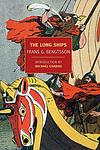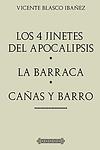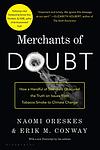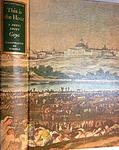The Greatest "Historical fiction, Spain" Books of All Time
Click to learn how this list is calculated.
This list represents a comprehensive and trusted collection of the greatest books. Developed through a specialized algorithm, it brings together 300 'best of' book lists to form a definitive guide to the world's most acclaimed books. For those interested in how these books are chosen, additional details can be found on the rankings page.
Genres
Historical fiction is a genre of literature that combines fictional stories with real historical events, settings, and characters. These books often take place in a specific time period and are based on research and factual information, but also include imaginative elements to create a compelling narrative. Historical fiction allows readers to experience the past in a unique and engaging way, while also providing insight into the social, cultural, and political issues of the time.
The "Spain" category of books refers to literature that is set in or about Spain, its culture, history, and people. This category includes a wide range of genres such as fiction, non-fiction, memoirs, travelogues, and historical accounts. Books in this category may explore the rich history of Spain, its diverse regions, its art and architecture, its cuisine, and its people. They may also delve into the country's political and social issues, its traditions, and its contemporary culture. Overall, the "Spain" category offers readers a fascinating glimpse into the vibrant and complex world of Spain.
Countries
Date Range
Reading Statistics
Click the button below to see how many of these books you've read!
Download
If you're interested in downloading this list as a CSV file for use in a spreadsheet application, you can easily do so by clicking the button below. Please note that to ensure a manageable file size and faster download, the CSV will include details for only the first 500 books.
Download-
1. Fortunata and Jacinta by Benito Pérez Galdós
"Fortunata and Jacinta" is a novel set in 19th century Spain, that explores the lives of two women - Fortunata, a poor but beautiful woman, and Jacinta, a wealthy and well-bred lady. Both women are in love with the same man, a wealthy and idle individual who leads a life of debauchery. The novel offers a rich and detailed portrayal of Madrid society during the period, and the stark contrast between the lives of the rich and the poor. It raises questions about marriage, social status, and the role of women in society.
-
2. The Shadow of the Wind by Carlos Ruiz Zafon
The novel follows the story of a young boy in post-war Barcelona, who discovers a mysterious book in a hidden library that his father takes him to, which houses forgotten books. The boy becomes captivated by the book and its author, but as he grows older, he realizes that someone is destroying all books written by this author. As he delves deeper into the mystery, the boy's life becomes intertwined with the author's, revealing a dark and tragic past that someone wants to be kept hidden. The story is a mix of romance, mystery, and a historical narrative set against the turbulent backdrop of a city recovering from war.
-
3. The House of Ulloa by Emilia Pardo Bazán
"The House of Ulloa" is a novel set in rural Spain during the 19th century, following the story of a young, idealistic priest sent to a decaying country estate to reform the marquis, who is a crude and corrupt nobleman. The priest's attempts at moral reform are thwarted by his love for the marquis' mistress and the cruel, primitive society that surrounds them. The book is a critique of the decaying nobility and the moral ambiguity of the Catholic Church.
-
4. The Hive by Camilo José Cela
"The Hive" is a novel set in post-Civil War Spain, during the harsh years of Madrid's postwar recovery. It provides a gritty and realistic portrayal of the struggles faced by ordinary citizens in a society marked by deprivation and repression. The narrative is non-linear and fragmented, featuring a vast array of characters from various social classes, whose lives intertwine in a depiction of the bleakness and despair of the time. The book was initially banned in Spain due to its critical view of Franco's regime.
-
5. The Moor's Last Sigh by Salman Rushdie
This novel follows the life of Moraes Zogoiby, the last in line of a once powerful and influential Indian family. Told from his perspective, Moraes recounts his family's history, starting with his grandparents and moving through to his own life. The narrative is filled with tales of love, betrayal, political unrest, and the supernatural. The protagonist's life is marked by a strange curse that causes him to age twice as fast as a normal human, adding a layer of urgency and tragedy to his story. The book explores themes of cultural identity, family legacy, and the passage of time.
-
6. Solitude by Caterina Albert
"Solitude" is a novel that explores the life and struggles of a young woman living in a rural Catalan village. The protagonist is a strong-willed, independent woman who defies societal norms and expectations, leading to friction with her conservative community. The narrative examines themes of gender, societal pressures, and the struggle for personal freedom, providing a powerful critique of rural life and patriarchal society.
-
7. The Time Of The Doves by Merce Rodoreda
The novel is a poignant exploration of a woman's life set against the backdrop of the Spanish Civil War and the early years of Franco's dictatorship. Through the eyes of the protagonist, a shopkeeper in Barcelona, readers experience her struggles with love, loss, and survival. Her personal journey is interwoven with the turbulent history of the era, as she endures the hardships of war, the complexities of her romantic relationships, and the challenges of raising her children alone. The narrative, rich with symbolic imagery, particularly the recurring motif of doves, offers a deeply emotional and intimate portrayal of resilience amidst the chaos of societal upheaval.
-
8. The Long Ships by Frans G. Bengtsson
"The Long Ships" is a historical fiction novel centering around the Viking era. The story follows the adventures of a young Viking named Red Orm who is kidnapped by other Vikings, becomes a slave, then a chieftain's henchman, a merchant, explorer, and a soldier. His adventures take him from his native Sweden to Spain, England, Denmark, and Ireland. The novel explores the political, religious, and cultural landscapes of the era, providing a detailed and engaging portrayal of the Viking world.
-
9. The Manuscript Found in Saragossa by Jan Potocki
"The Manuscript Found in Saragossa" is a complex, multi-layered narrative that revolves around a young officer who discovers an ancient manuscript during the Napoleonic Wars. The manuscript contains a series of interwoven stories that span across time and space, featuring a range of characters including gypsies, bandits, and noblemen. These tales explore themes of philosophy, morality, and the supernatural, all while offering a fascinating glimpse into 18th-century Spanish culture.
-
10. The Club Dumas by Arturo Pérez-Reverte
The book follows Lucas Corso, a book detective who is hired to authenticate a rare manuscript by Alexandre Dumas. As he delves into the investigation, he finds himself entangled in a mystery involving two other books: a rare edition of "The Three Musketeers" and a satanic text, "The Book of Nine Doors of the Kingdom of Shadows". The narrative becomes a complex puzzle as Corso uncovers connections between the books, while also dealing with a seductive woman who seems to have stepped out of a Dumas novel, a mysterious killer, and a group of bibliophiles obsessed with Dumas. The lines between fiction and reality blur as he gets closer to the truth.
-
11. Compassion by Benito Pérez Galdós
"Compassion" is a compelling narrative that explores the themes of poverty, compassion, and human morality. Set in 19th-century Spain, it follows the story of a wealthy woman who, after an encounter with a poor, blind beggar, is moved to reassess her life and the societal norms of the time. This chance meeting prompts her to question the established social order and her privileged position within it, leading to a profound personal transformation. This novel is a poignant exploration of human empathy and the societal structures that often hinder its expression.
-
12. Memoirs of a Peasant Boy by Xosé Neira Vilas
"Memoirs of a Peasant Boy" is a poignant narrative about the harsh realities of rural life in Galicia, Spain during the early 20th century, as seen through the eyes of a young boy. The protagonist, who is also the narrator, offers a vivid depiction of his experiences growing up in poverty, dealing with oppressive landlords, and struggling for survival and education. This autobiographical novel is a powerful commentary on social injustice and the enduring spirit of the human will.
-
13. Last Evenings with Teresa by Juan Marse
The novel revolves around a young, ambitious man from the lower class who is obsessed with breaking into the higher social strata of Barcelona. He believes that his ticket to this higher society is through seducing Teresa, a naive, young girl from a well-off family. As he manipulates Teresa, he finds himself entangled in a web of deceit, lies, and unexpected feelings. The story is a gritty exploration of class, ambition, and the lengths people will go to achieve their desires.
-
14. Curial e Güelfa by Anonymous
"Curial e Güelfa" is a 15th-century romance novel written in Catalan, featuring an anonymous knight, Curial, who serves the Emperor of Rome. After falling in love with the beautiful Güelfa, he faces many challenges and adventures to prove his worthiness. However, he later discovers that Güelfa is already married to the Emperor. Despite the heartbreak, he remains loyal and serves the Emperor faithfully. The novel explores themes of chivalry, courtly love, and the conflict between duty and personal desires.
-
15. Guzmán de Alfarache by Mateo Alemán
"Guzmán de Alfarache" is a picaresque novel that follows the life of the protagonist, Guzmán, a rogue who recounts his life story from his humble beginnings to his eventual downfall. Through his narrative, he provides a moralizing commentary on various aspects of Spanish society in the 16th century. The book explores themes of morality, religion, and social criticism, and is considered a precursor to the modern novel.
-
16. La Barraca by Vicente Blasco Ibáñez
This novel is a poignant portrayal of the struggles faced by a family who moves to the Valencian countryside to take over an abandoned farm, only to be met with hostility from the local community. The narrative delves into themes of social injustice, the harsh realities of rural life, and the relentless battle against nature's whims. As the family endeavors to cultivate the land and integrate into the community, they encounter resistance and sabotage from neighbors who resent their presence. The story is a vivid depiction of human resilience and the pursuit of hope amidst adversity, set against the backdrop of the fertile but unforgiving Spanish landscape.
-
17. Sotileza by Jose M. de Pereda
This novel is a vivid portrayal of 19th-century life in the Spanish fishing village of Santander, focusing on the life and struggles of its protagonist, a young woman nicknamed "Sotileza." Through her story, the narrative delves into themes of love, honor, and the harsh realities of the working class, set against the backdrop of the sea which plays a central role in the community's livelihood. The author masterfully captures the dialect, customs, and daily life of the villagers, providing a detailed and affectionate depiction of the Cantabrian people and their traditions. Through its rich character development and evocative setting, the novel offers a poignant exploration of human resilience and the pursuit of happiness amidst societal constraints.
-
18. Terra Nostra by Carlos Fuentes
This sprawling, complex novel is a rich tapestry of historical, philosophical, and literary references that explores the identity and culture of Latin America through a fantastical lens. Set primarily in 16th-century Spain during the reign of Philip II, the narrative weaves together the lives of historical figures and fictional characters, blending reality with myth and time travel. The story delves into themes of creation and destruction, the cyclical nature of history, and the quest for a utopian society, all while examining the consequences of colonialism and the search for a Latin American identity that reconciles its indigenous, African, and European heritage. The novel's intricate structure and dense prose challenge the reader to consider the past's impact on the present and future of a region with a tumultuous history.
-
19. Tobacco by Dimitar Dimov
The book in question is a historical novel set in the early 20th century, exploring the lives of characters involved in the tobacco industry in Bulgaria. It delves into the personal and political turmoil of the time, focusing on the struggles of the working class and the manipulations of the wealthy elite. The narrative intertwines love, betrayal, and ambition, as it portrays the harsh realities of labor exploitation and the social upheavals leading up to World War II. Through its vivid characters and rich descriptions, the novel offers a critical look at the impact of capitalism and the quest for power on individuals and society.
-
20. This Is The Hour by Lion Feuchtwanger
This historical novel transports readers to the vibrant and tumultuous world of Renaissance Florence, focusing on the life and times of the legendary artist and thinker, Leonardo da Vinci. Through meticulous research and vivid storytelling, the narrative delves into Leonardo's relentless pursuit of knowledge, his unparalleled genius in both art and science, and his complex relationships with his contemporaries. Set against the backdrop of political intrigue, war, and the cultural flourishing of the Italian Renaissance, the book offers a compelling exploration of the challenges and triumphs of a man far ahead of his time, highlighting his contributions to humanity and his eternal quest for understanding the mysteries of the world.
-
21. The Song of Roland by Unknown
"The Song of Roland" is an epic poem based on the Battle of Roncevaux Pass in 778 during the reign of Charlemagne. The story revolves around the hero, Roland, and his loyalty to his king, Charlemagne. As a commander of the rearguard of Charlemagne's army, Roland is betrayed by his stepfather, Ganelon, which leads to a disastrous battle with the Saracens. Roland's heroic deeds, his friendship with Oliver, and his tragic death are central to the narrative. The poem is a major part of the medieval European literature, emphasizing the code of chivalry and the duties of a knight.
-
22. Peace In War by Miguel de Unamuno
This philosophical novel explores the internal and external conflicts experienced during a time of war, focusing on the personal struggles and moral dilemmas of its characters. Set against the backdrop of a besieged city, the narrative delves into themes of existentialism, the meaning of life, and the search for peace amidst chaos. Through its introspective examination of human nature and society, the book questions the very essence of conflict and the possibility of finding tranquility in a world torn apart by war. The protagonist's journey reflects a deep inquiry into the human soul and the paradox of seeking peace in times of war, making it a profound commentary on the human condition.
-
23. The History Of Gil Blas Of Santillana by Alain-René Lesage
This classic picaresque novel follows the adventures and misadventures of the young Spaniard, Gil Blas, as he navigates through the ups and downs of life, from poverty to wealth, from servant to nobleman, across the varied landscape of 17th-century Spain. Through a series of engaging episodes, the protagonist encounters a wide array of characters, from rogues and thieves to honest men and true friends, experiencing firsthand the vices and virtues of humanity. The narrative, rich in satire and social commentary, humorously critiques the corruption and folly of society, while also exploring themes of fate, ambition, and morality. Through Gil Blas' journey, the reader is offered a vivid and entertaining portrait of Spanish life and culture during the period.
-
24. The Family Of Pascual Duarte by Camilo José Cela
The book is a harrowing narrative of a man from rural Spain, chronicling his life marked by violence and hardship in the early 20th century. Written as a series of letters from prison, the protagonist recounts his tumultuous journey through a series of misfortunes, familial strife, and brutal personal impulses that lead him down a path of murder and eventual execution. The novel delves into themes of fate, existential despair, and the brutal realism of peasant life, offering a stark portrayal of a man struggling against the inexorable pull of his own tragic nature.
-
25. The Tree Of Knowledge by Pío Baroja
"The Tree of Knowledge" is a philosophical novel that delves into the life of Andrés Hurtado, a young man who struggles with the meaning of life and the search for truth in a society filled with hypocrisy and superficiality. As he pursues a career in medicine, Hurtado becomes increasingly disillusioned with the human condition and the limitations of scientific understanding. His journey is one of intellectual and emotional turmoil, as he grapples with existential questions and the complexities of love, family, and societal expectations. The narrative is a reflection on the challenges of reconciling the pursuit of knowledge with the quest for personal happiness and moral integrity.
Reading Statistics
Click the button below to see how many of these books you've read!
Download
If you're interested in downloading this list as a CSV file for use in a spreadsheet application, you can easily do so by clicking the button below. Please note that to ensure a manageable file size and faster download, the CSV will include details for only the first 500 books.
Download



















